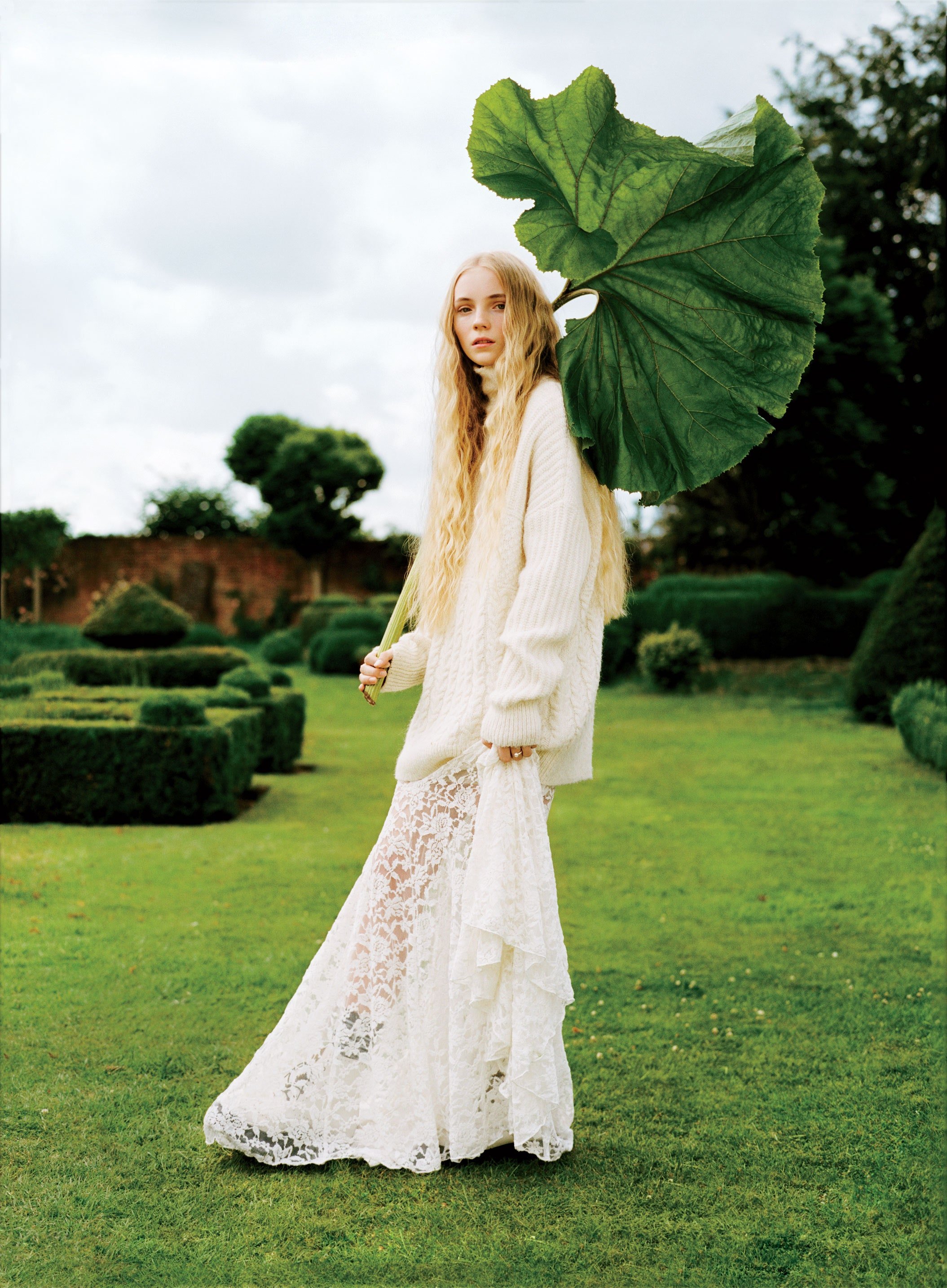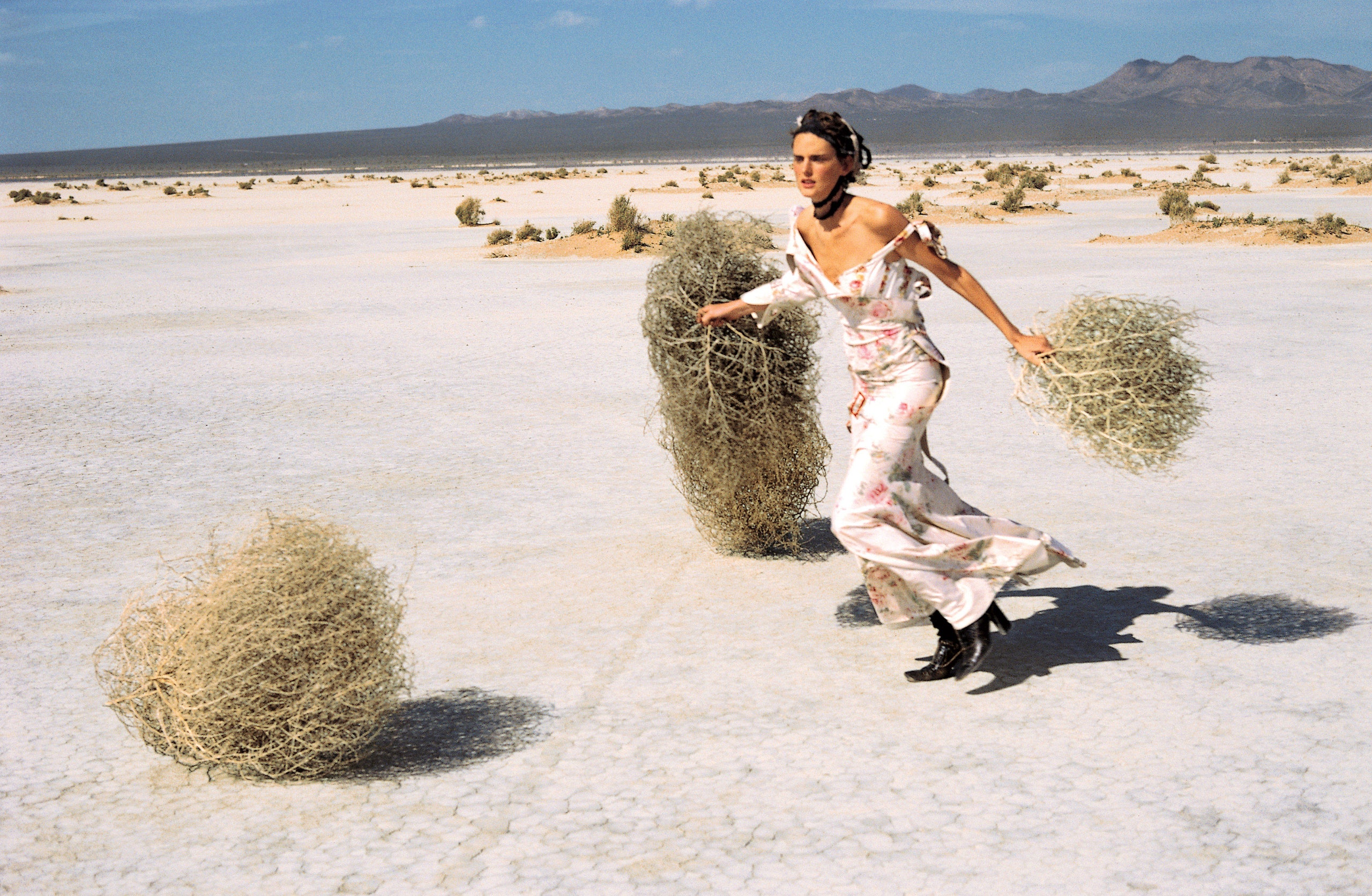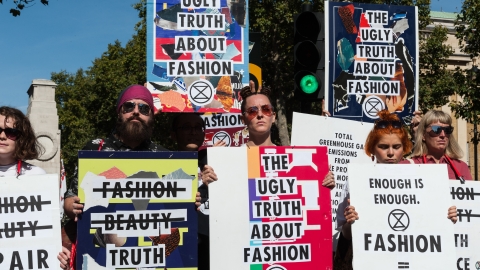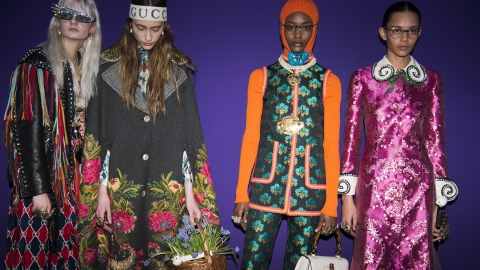Millennials and Gen Z consumers are driving 85% of global luxury sales growth. They are actively making lifestyle changes to benefit the environment while carefully considering the social impact of each purchase. This means their purchasing decisions are based on buying from brands that align with their values and perspectives.
And this isn't just what Millennials and Gen Z consumers want. According to a Bain & Co. study, 89% of consumers in general expect brands to publicly demonstrate sustainability practices, especially in the luxury fashion sector.
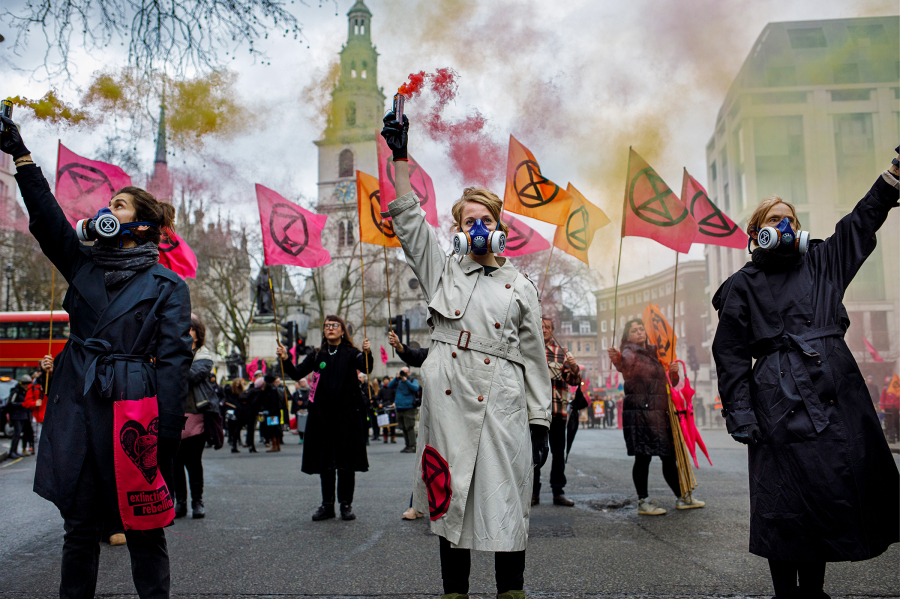
Protesters demonstrated against the environmental impact of fast fashion at London Fashion Week 2020.
Luxury companies wishing to maintain their position in the high-end market cannot ignore these calls to action. If they want to remain relevant, they should seriously consider the threat of the climate crisis and shift toward producing sustainable and ethical luxury goods.
Luxury retailers like LVMH and Gucci have launched numerous campaigns and initiatives demonstrating their commitment to the environment. Increasingly, designers, such as Armani, Jimmy Choo, Givenchy, and Versace, are declaring they will not use fur in their collections.
Stella McCartney
Stella McCartney is a designer synonymous with "ethical fashion." Since launching her first collection, Stella McCartney has reshaped the fashion world by creating modern, high-end, and non-toxic garments. The brand avoids leather and fur, primarily using materials from wool, organic cotton, and recycled fabrics such as nylon and polyester.
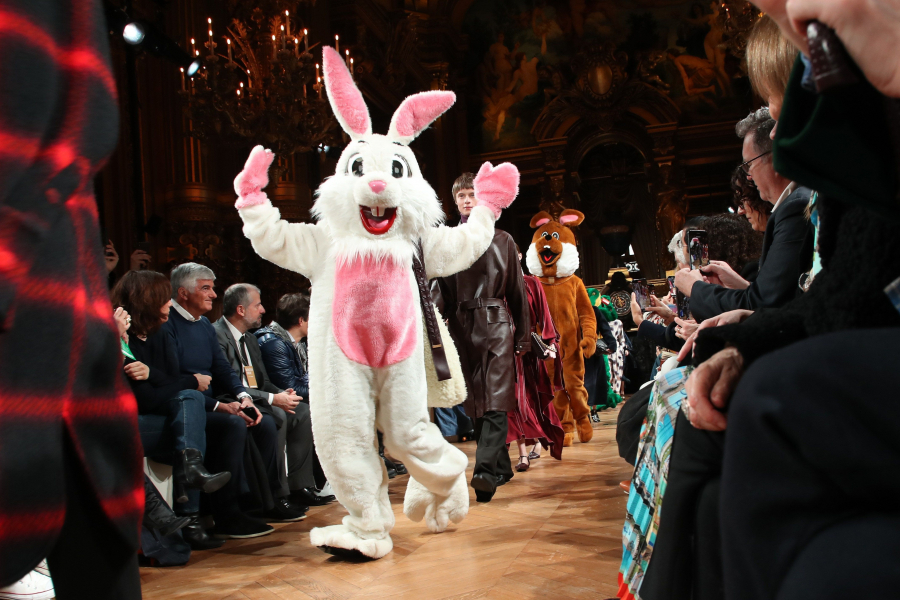
The special "guests" who appeared at Stella McCartney's Fall/Winter 2020 fashion show served as a statement that the brand absolutely does not use animal products.
As a member of the Ethical Business Initiative, the Stella McCartney brand also cares about the suppliers it partners with. They strive to support small businesses and artisans in Europe.
Vivienne Westwood
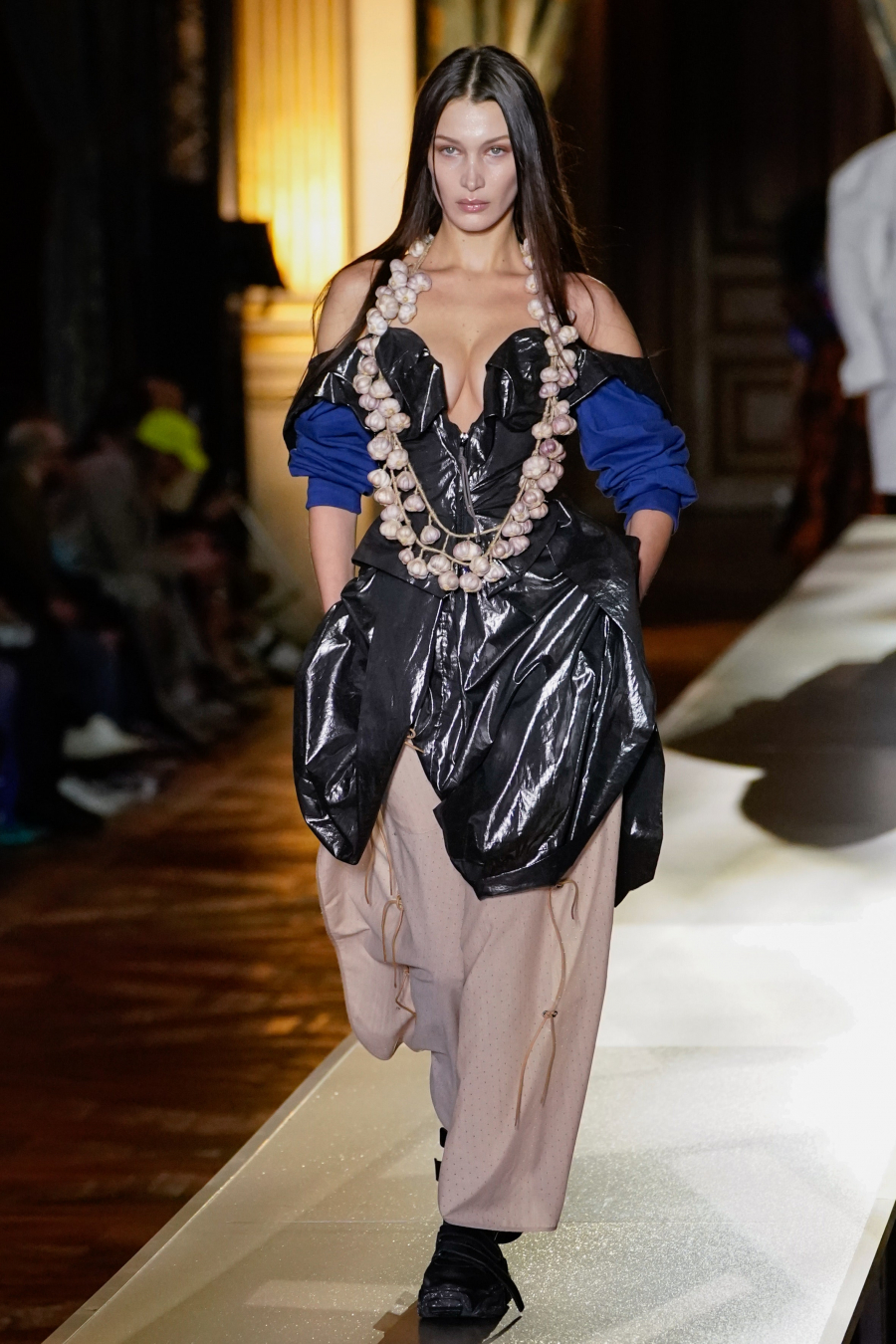
An environmentally friendly and waste-minimizing design from the Vivienne Westwood brand.
As a designer committed to environmental and sustainable fashion for many years, Vivienne Westwood has always championed the motto "Buy less, choose better, and use longer." This well-known slogan promotes balanced consumption, both in fashion and other aspects of life. The Vivienne Westwood brand uses recycled or eco-friendly fabrics such as linen, organic cotton, bamboo fiber, and natural, colorful raw fabrics. Through environmentally friendly and sustainable methods in its production process, Vivienne Westwood has created several sustainable product lines that benefit the community.
LVMH
In 2012, LVMH Group, which owns luxury fashion brands such as Louis Vuitton, Christian Dior, Céline, Givenchy, and Marc Jacobs, launched the LIFE (LVMH Initiative For the Environment) program. LVMH reinforced this commitment in 2016 and set four goals for 2020 – improving the environmental performance of all its products. They apply the highest standards in sourcing and reducing CO2 emissions.2and improve key environmental indicators for all sites.

Over 160 trees used to decorate this Dior runway show will be replanted after the show ends.
In addition to these commitments, LVMH is exploring initiatives to support the conservation of the Amazon rainforest. Last year, LVMH acquired a minority stake in Stella McCartney and appointed the designer as a special advisor on sustainability.
Gucci
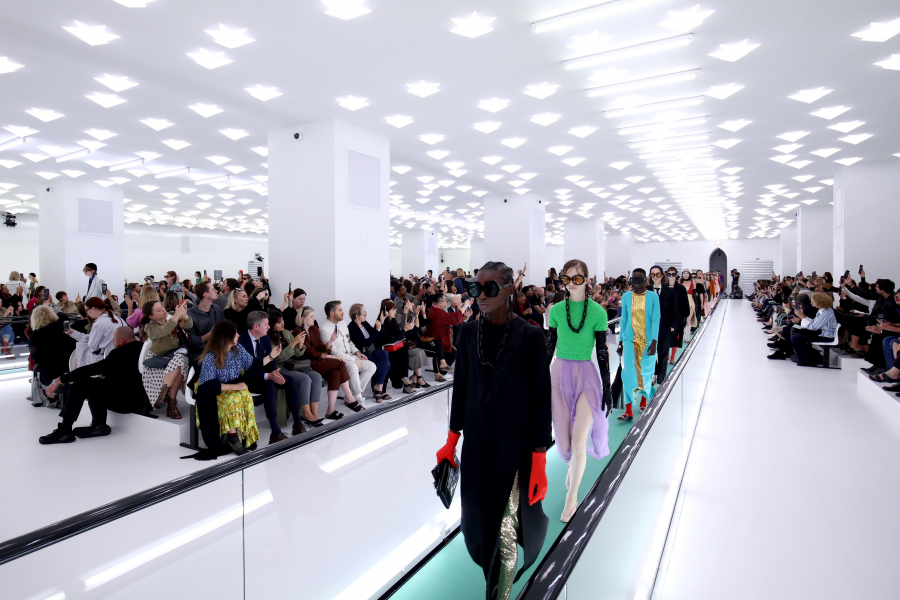
Gucci announced its carbon neutrality plan in 2019.
Gucci also announced its carbon neutrality plan last year, as part of a 10-year sustainability plan that brings together three pillars: environment, people, and innovation. The brand is committed to minimizing its environmental impact in its business operations, focusing on limiting energy and water use, reducing waste and toxic materials, and enhancing the quality and sustainability of its materials. Gucci encourages its employees to dedicate 1% of their working time to volunteering in local communities.
channel
The iconic French fashion brand has launched its Chanel Mission 1.5 plan to address climate change, aiming to reduce carbon emissions across all its operations. Chanel will transition to 100% renewable energy by 2025.
Burberry
Burberry has made environmental commitments including becoming a core partner of the Ellen MacArthur Foundation's Make Fashion Circular initiative alongside Gap, H&M, HSBC, Nike, and Stella McCartney. Additionally, the brand no longer uses real fur in its collections and has pledged to phase out existing fur products.
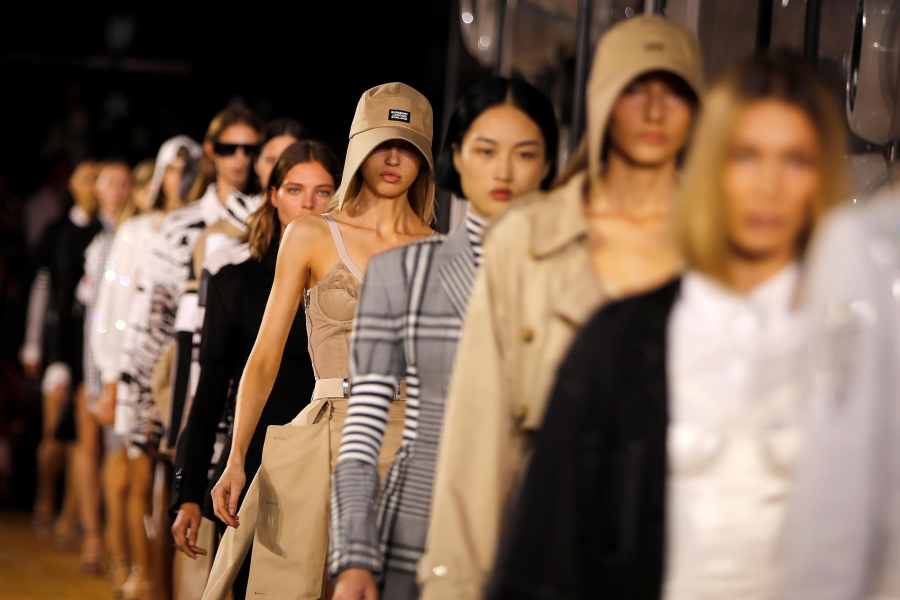
Burberry has held carbon-neutral fashion shows and is moving toward more proactive sustainability goals.
The list of luxury brands that have committed to becoming more sustainable in one way or another continues to grow longer. All of this paints an optimistic picture of how the fashion industry is evolving. No brand has yet achieved true sustainability, but the fact that companies are becoming more responsive demonstrates that a shift is underway.

 VI
VI EN
EN



